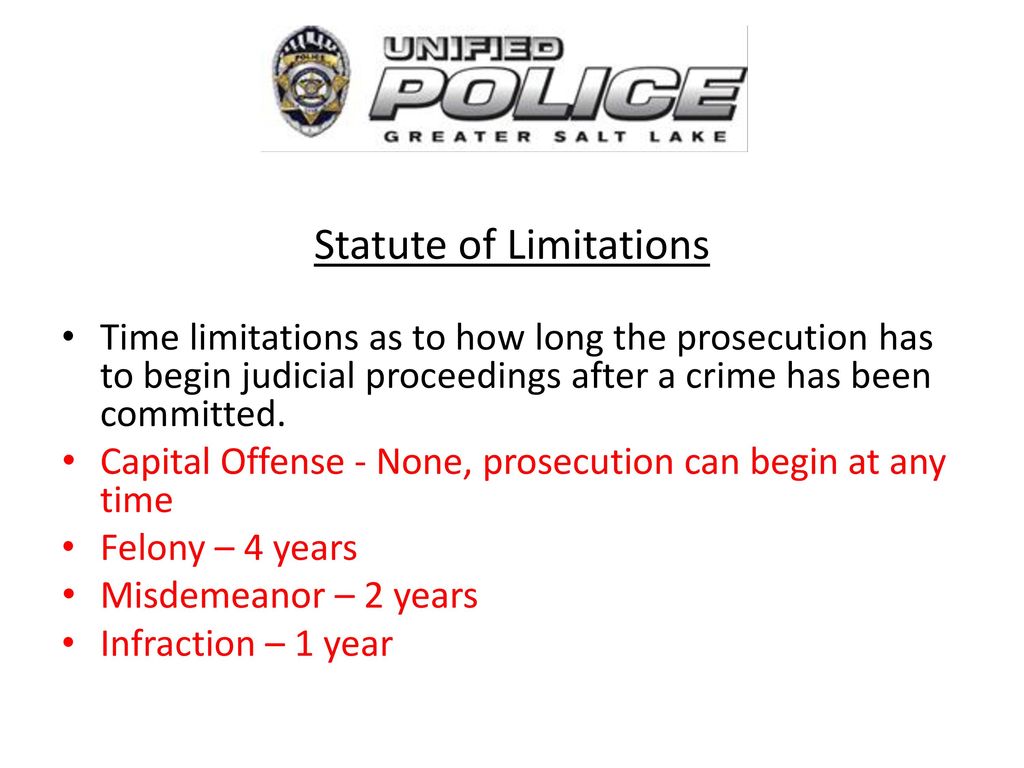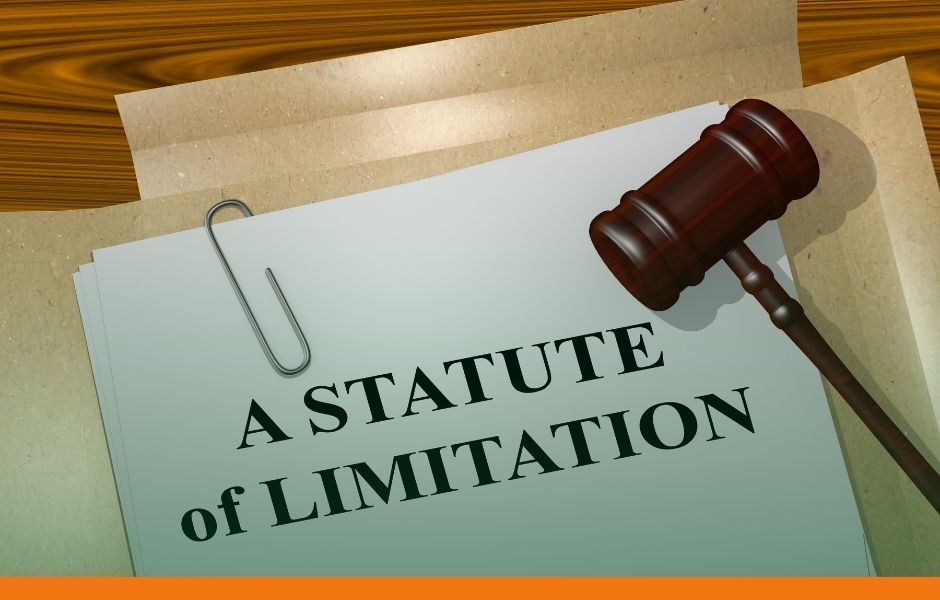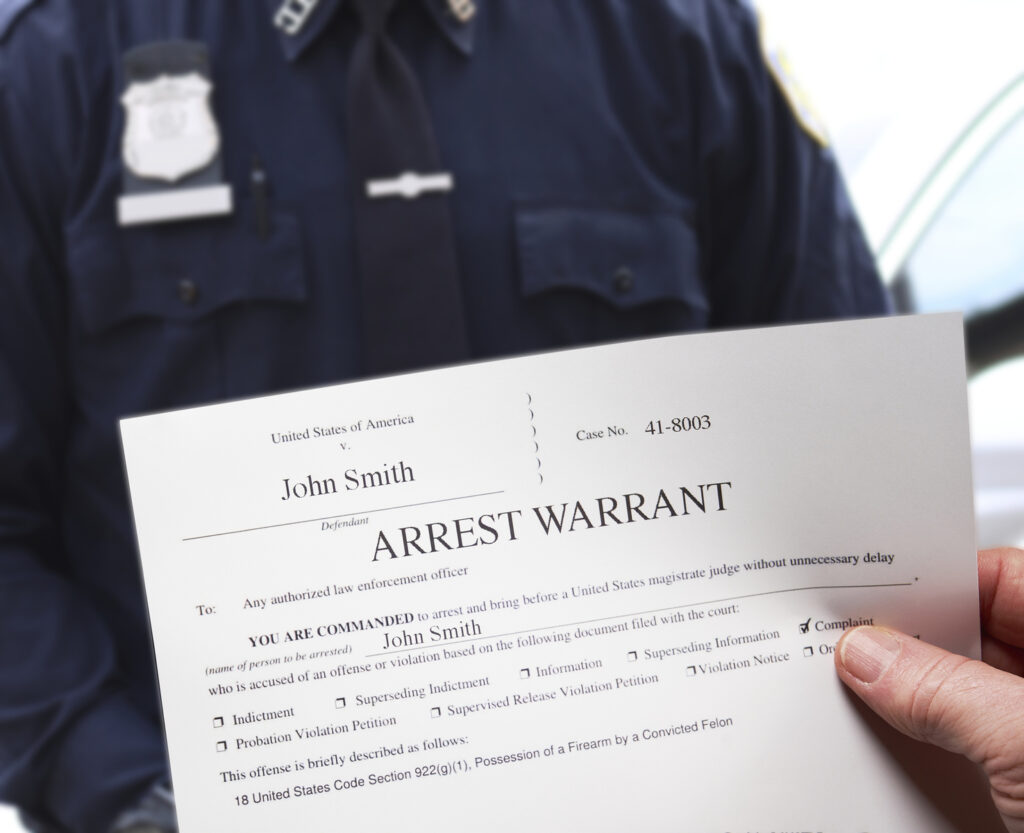Statute Of Limitations On Misdemeanor Warrants - The issuance of a criminal warrant in pursuance of an affidavit does not suspend the two years' limitation of prosecutions for. There's no statute of limitations on warrants. The statute of limitations for misdemeanor criminal offenses is usually one year from the date of the alleged commission of the crime. While misdemeanor warrants do not expire, the underlying charges may be subject to a statute of limitations, which sets a time frame. Here are key points to consider regarding the statute of limitations for warrants: A prosecution for a misdemeanor, or any pecuniary fine, forfeiture, penalty or amercement, shall be commenced within one. Each state establishes its own. An arrest or bench warrant will remain live until the day you die.
An arrest or bench warrant will remain live until the day you die. A prosecution for a misdemeanor, or any pecuniary fine, forfeiture, penalty or amercement, shall be commenced within one. While misdemeanor warrants do not expire, the underlying charges may be subject to a statute of limitations, which sets a time frame. The statute of limitations for misdemeanor criminal offenses is usually one year from the date of the alleged commission of the crime. Here are key points to consider regarding the statute of limitations for warrants: The issuance of a criminal warrant in pursuance of an affidavit does not suspend the two years' limitation of prosecutions for. There's no statute of limitations on warrants. Each state establishes its own.
Each state establishes its own. A prosecution for a misdemeanor, or any pecuniary fine, forfeiture, penalty or amercement, shall be commenced within one. Here are key points to consider regarding the statute of limitations for warrants: While misdemeanor warrants do not expire, the underlying charges may be subject to a statute of limitations, which sets a time frame. There's no statute of limitations on warrants. An arrest or bench warrant will remain live until the day you die. The statute of limitations for misdemeanor criminal offenses is usually one year from the date of the alleged commission of the crime. The issuance of a criminal warrant in pursuance of an affidavit does not suspend the two years' limitation of prosecutions for.
Statute of Limitations Definition, Types, and Example
Each state establishes its own. Here are key points to consider regarding the statute of limitations for warrants: While misdemeanor warrants do not expire, the underlying charges may be subject to a statute of limitations, which sets a time frame. The issuance of a criminal warrant in pursuance of an affidavit does not suspend the two years' limitation of prosecutions.
Why Arrest Warrants Rarely Expire and How Statutes of Limitations May
An arrest or bench warrant will remain live until the day you die. Here are key points to consider regarding the statute of limitations for warrants: The issuance of a criminal warrant in pursuance of an affidavit does not suspend the two years' limitation of prosecutions for. A prosecution for a misdemeanor, or any pecuniary fine, forfeiture, penalty or amercement,.
Civil Lawsuit Statute of Limitations A small description on it
Each state establishes its own. A prosecution for a misdemeanor, or any pecuniary fine, forfeiture, penalty or amercement, shall be commenced within one. There's no statute of limitations on warrants. An arrest or bench warrant will remain live until the day you die. Here are key points to consider regarding the statute of limitations for warrants:
Chapter Four The Law. ppt download
A prosecution for a misdemeanor, or any pecuniary fine, forfeiture, penalty or amercement, shall be commenced within one. The statute of limitations for misdemeanor criminal offenses is usually one year from the date of the alleged commission of the crime. An arrest or bench warrant will remain live until the day you die. Here are key points to consider regarding.
Virginia Criminal Law Learn About Misdemeanors, the Statute of
A prosecution for a misdemeanor, or any pecuniary fine, forfeiture, penalty or amercement, shall be commenced within one. The statute of limitations for misdemeanor criminal offenses is usually one year from the date of the alleged commission of the crime. While misdemeanor warrants do not expire, the underlying charges may be subject to a statute of limitations, which sets a.
IRS 10 Year Statute of Limitations Explained
The statute of limitations for misdemeanor criminal offenses is usually one year from the date of the alleged commission of the crime. Each state establishes its own. A prosecution for a misdemeanor, or any pecuniary fine, forfeiture, penalty or amercement, shall be commenced within one. An arrest or bench warrant will remain live until the day you die. Here are.
Criminal Arrest Warrants Almost Never Expire but Statutes of
A prosecution for a misdemeanor, or any pecuniary fine, forfeiture, penalty or amercement, shall be commenced within one. There's no statute of limitations on warrants. The issuance of a criminal warrant in pursuance of an affidavit does not suspend the two years' limitation of prosecutions for. The statute of limitations for misdemeanor criminal offenses is usually one year from the.
Brent E. Taylor Indictment PDF Arrest Warrant Statute Of Limitations
A prosecution for a misdemeanor, or any pecuniary fine, forfeiture, penalty or amercement, shall be commenced within one. There's no statute of limitations on warrants. The issuance of a criminal warrant in pursuance of an affidavit does not suspend the two years' limitation of prosecutions for. The statute of limitations for misdemeanor criminal offenses is usually one year from the.
Criminal Law. ppt download
A prosecution for a misdemeanor, or any pecuniary fine, forfeiture, penalty or amercement, shall be commenced within one. Each state establishes its own. The statute of limitations for misdemeanor criminal offenses is usually one year from the date of the alleged commission of the crime. There's no statute of limitations on warrants. Here are key points to consider regarding the.
Cases CJS PDF Statute Of Limitations Search Warrant
A prosecution for a misdemeanor, or any pecuniary fine, forfeiture, penalty or amercement, shall be commenced within one. Each state establishes its own. The issuance of a criminal warrant in pursuance of an affidavit does not suspend the two years' limitation of prosecutions for. The statute of limitations for misdemeanor criminal offenses is usually one year from the date of.
Here Are Key Points To Consider Regarding The Statute Of Limitations For Warrants:
There's no statute of limitations on warrants. The issuance of a criminal warrant in pursuance of an affidavit does not suspend the two years' limitation of prosecutions for. A prosecution for a misdemeanor, or any pecuniary fine, forfeiture, penalty or amercement, shall be commenced within one. The statute of limitations for misdemeanor criminal offenses is usually one year from the date of the alleged commission of the crime.
While Misdemeanor Warrants Do Not Expire, The Underlying Charges May Be Subject To A Statute Of Limitations, Which Sets A Time Frame.
Each state establishes its own. An arrest or bench warrant will remain live until the day you die.
:max_bytes(150000):strip_icc()/statute-of-limitations-4188623-v2-final-ea089264e0684f558b90b959d85adda9.png)








